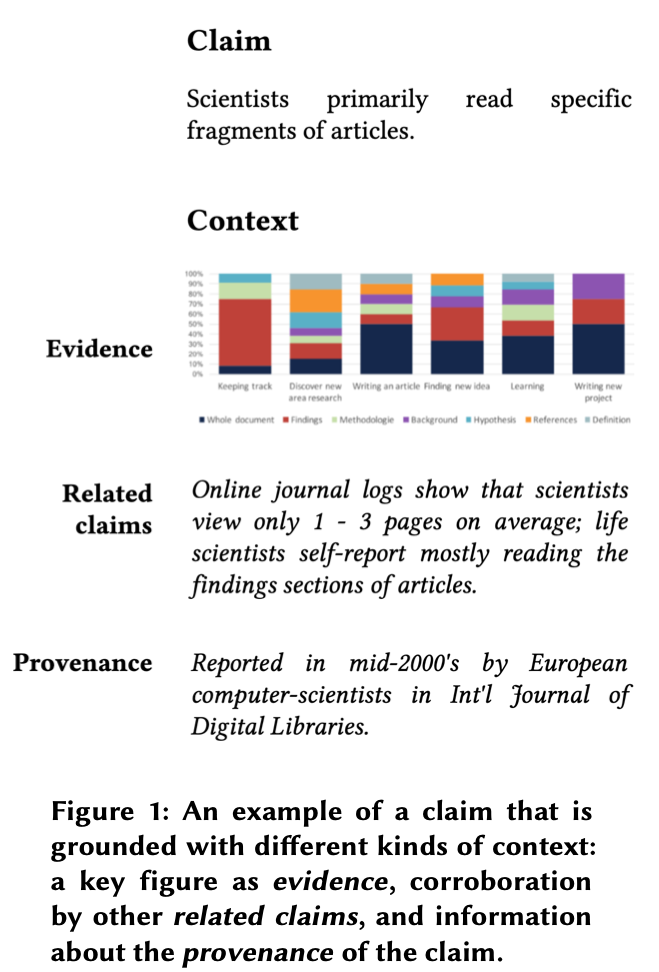Andyʼs working notes
About these notesGrounded claims, after Qian et al
When researchers synthesize knowledge (for instance by reading academic literature) they must assemble a densely connected web of “grounded claims”: precise statements including enough context (sources, evidence, scope, connections) to help the researcher practically use the claim in practice.
This construct is related to my practice of factoring notes so that they can have sharp titles acting like APIs (Evergreen note titles are like APIs). Both notions emphasize atomicity and precision. Grounded claims emphasize evidence and provenance to a greater degree. Evergreen note titles have a somewhat broader scope, since they’re not necessarily trying to be statements of fact (e.g. To what extent is exceptional ability heritable?).
This figure (Qian et al, 2019) illustrates a claim with its grounding context:
References
Qian, X., Erhart, M. J., Kittur, A., Lutters, W. G., & Chan, J. (2019). Beyond iTunes for Papers: Redefining the Unit of Interaction in Literature Review Tools. Conference Companion Publication of the 2019 on Computer Supported Cooperative Work and Social Computing, 341–346. https://doi.org/10.1145/3311957.3359455 Qian et al - Beyond iTunes for Papers - Redefining the Unit of Interaction in Literature Review Tools